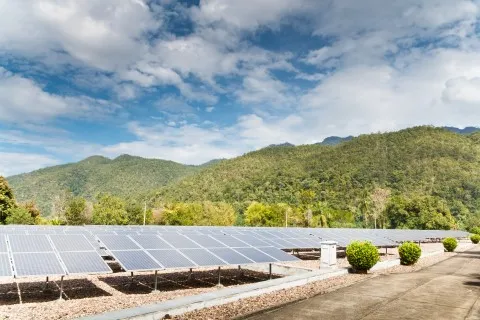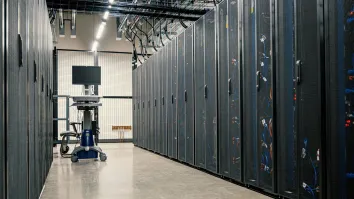
India reveals financial support of $55,000 for rooftop solar capacity boost
It eyes upgrading capacity up to 1,350MW.
In a new policy move, the Ministry of New and Renewable Energy (MNRE) has announced financial incentives for DISCOMs to support rooftop solar installations. The notification proposes a financial support of up to INR 3.75m (USD 55,000)/MW for up to 1,350 MW of rooftop solar capacity.
Bridge to India said that the funds can be used by DISCOMs for multiple activities including upgradation of distribution network and IT infrastructure, building consumer awareness campaigns, setting up consumer helplines, training employees, rating installers etc.
Indian government’s aim is to grow rooftop solar to 40x the current installed base of 1 GW in a little over five years. This is a formidable target and grid connection is one of the main challenges affecting the growth of this market. Bridge to India’s analysis shows that effective grid connection and net-metering policies can increase customer adoption rates by up to 50%.
Here's more from Bridge to India:
Despite an overtly supportive rooftop solar policy and regulatory framework across most states, the DISCOMs remain largely reluctant and ill-equipped for large scale market adoption. Their concerns are mainly twofold and entirely understandable – i) potential loss of revenue and in particular, loss of high-paying commercial and industrial consumers; and ii) additional implementation burden of modernising the grid and inspecting, certifying and billing rooftop systems. If a state has 700 MW of rooftop solar capacity on by 2020 consistent with Bridge to India’s rooftop solar market projection, the state DISCOMs will lose 0.8% of their power sales by volume and 1.4% by revenues. These numbers may seem small but so long as the DISCOMs remain in a perilous financial condition, it is unrealistic to expect them to support growth of rooftop solar.
The policy of financially incentivising DISCOMs is therefore a much-needed step in the right direction even as the amount of incentive being offered is relatively small as per MNRE’s own calculations. However, the process of claiming the proposed incentive is extremely onerous as MNRE has specified a tough and long list of mandatory conditions for DISCOMs, most of which not only need further clarification but also run afoul of prevailing state-level policies and regulations. For example, it has specified the rate of purchase of surplus power to be at the same level as retail tariffs but most state policies either do not allow any purchase of surplus power or usually offer a much lower price. Another condition stipulates that the DISCOMs should comply with the ambitious rooftop target specified by MNRE. This would be impossible for any DISCOM to comply with.
Bridge to India has been arguing for some time for the need to bring DISCOMs on board not just by diktat but through financial incentives. Our view is that financial support for DISCOMs should continue until they can adapt their business models and find new sources of revenue from distributed energy generation. But for the policy to be effective, MNRE needs to make sure that that eligibility conditions and funds disbursement process is not unduly restrictive.


















 Advertise
Advertise




